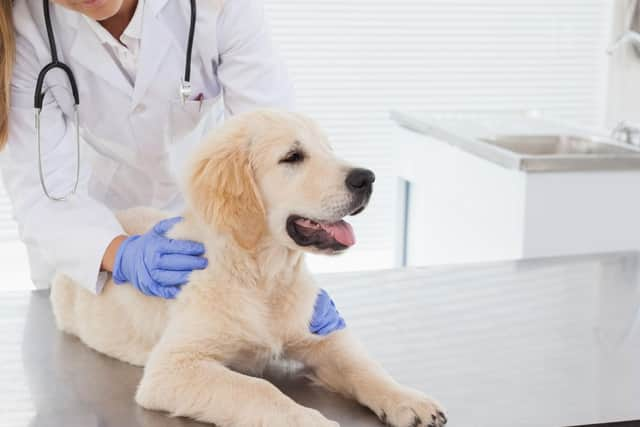Vet Advice For New Puppy Owners: Here are the answers to the 5 commonly asked questions asked by first time dog parents
A huge number of us decided to welcome new puppies into our homes over the last two years, with Kennel Club figures showing dog ownership soared over the global pandemic.
It’s currently National Pet Month so to mark the occasion – and give a helping hand to the army of new dog parents – disinfectant experts Zolflora have asked their resident vet, Cat Henstridge, to answer five common questions asked by people nervously welcoming a puppy or rescue dog into their home.
Here are her top tips.
Advertisement
Hide AdAdvertisement
Hide AdHow do I make my home as welcoming as possible for a new dog?
Did you know that puppies need to sleep up to 20 hours a day, so one of the most important things they need is a super comfy bed. The bed you chose should be deep, soft, and large enough for them to be able to stretch out to their full length.
If you are crate training, it’s important to put their bed in a crate large enough to accommodate it, along with a water bowl and a small area to pass faeces and urine while your puppy is small.
What do I need to think about when taking my dog home for the first time?


It is now a legal requirement to have all pets safely restrained in a car, so look at that before you travel and make sure you have a compliant carrier or seatbelt ready.
Ask the breeder or rescuer to give you a blanket they have used so your new pet has a comforting scent with them. Take spare blankets, towels, cleaning supplies and puppy pads because little accidents, and sickness, are very common.
Plan your journey home carefully and take breaks at least hourly so they can stretch their legs (remember this won’t be possible for cats or pups who haven’t completed their vaccines).
Also, ensure the car is kept cool, particularly in the boot where the aircon may not reach, so consider opening a window to keep the air flowing.
The temptation, especially with a puppy, is to give them a toy or treats to distract them, and while this may help if they are distressed, in most cases it is better to try to keep them calm and hopefully they will sleep most of the way home.
How do I stop a doggy smell from taking over the house?
We love our pets but not necessarily their smells, but there are things we can do to put the pongs in their place.
Advertisement
Hide AdAdvertisement
Hide AdBedding can be a real source of stale odours, so make sure you wash them regularly. A ‘wash one, wear one’ strategy works well and buying bedding that can cope with regular machine washes is always best.
In between washes you can use disinfectant spray to eliminate any unwanted odours and give your pets bedding a quick refresh.
Are there fragrances you should avoid using with a new pet?
For our pets, just like for us, fragrances are a very personal thing, and what might bother one animal might not impact another. Also, the way they perceive smells is very different to us, to them scent is about communication, so floral and fresh scents are often ignored.
However, when you bring a new pet home, you want the atmosphere to be as calm and as welcoming as possible, so I would avoid any strongly scented products for a few days, just while they settle in and get used to their new surroundings.
If they have been rehomed, it will help to bring a blanket from their previous home. They will find the familiar smells carried on it very comforting while they make the transition into their forever home.
How can dog owners save money?
The most predictable thing about our pets is that they are unpredictable. I really encourage all pet owners to take out insurance to help with unexpected vets bills. The best polices have ‘lifetime’ cover and ideally your pet will have funds of several thousand pounds to help with costs. Cheaper polices are available but will have less flexibility so it is important to read the small print carefully.
Many veterinary clinics have ‘pay monthly’ schemes that you can join that include all your pet’s routine health care like parasite protection and often have added extras such as free consultations, and discounts on some procedures. Generally, they represent a significant saving over paying as you go, and you have the peace of mind your pet is covered for preventative health measures.
Things pets don’t need - a wardrobe full of outfits. They may look cute but ultimately are a waste of money.
Advertisement
Hide AdAdvertisement
Hide AdA variety of toys for all kinds of pets will always be appreciated but they tend to ignore ones that have been lying around for a while. You can buy more but simply putting all their playthings out of sight and bringing just a few out each day keeps the novelty factor going for much longer.
A significant expense for pet owners is their food and the sky is the limit when it comes to costs! However, costlier does not necessarily mean healthier. Whatever you chose to feed your pet with, you should look out for brands who employ a ‘Board Certified Veterinary Nutritionist’ or a ‘PhD holder in Animal Nutrition’.
Read more:
Comments
Want to join the conversation? Please or to comment on this article.